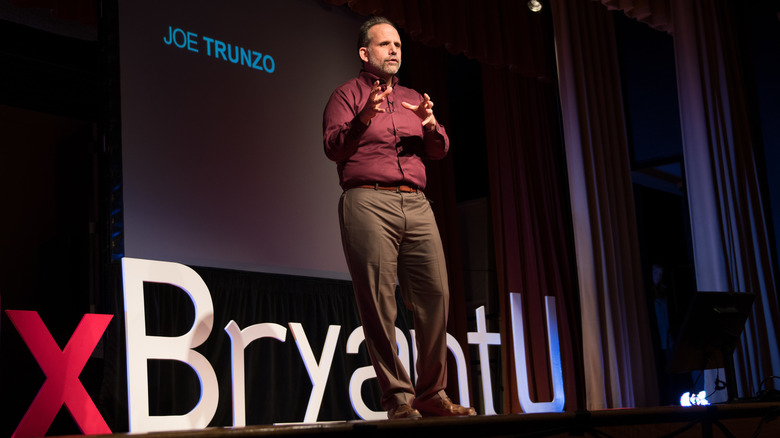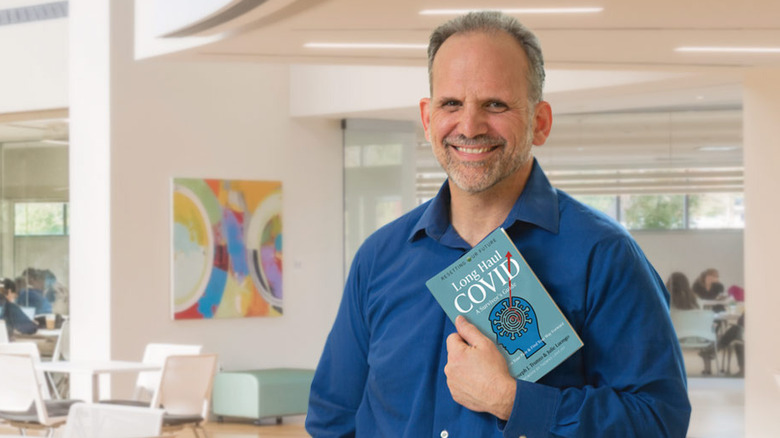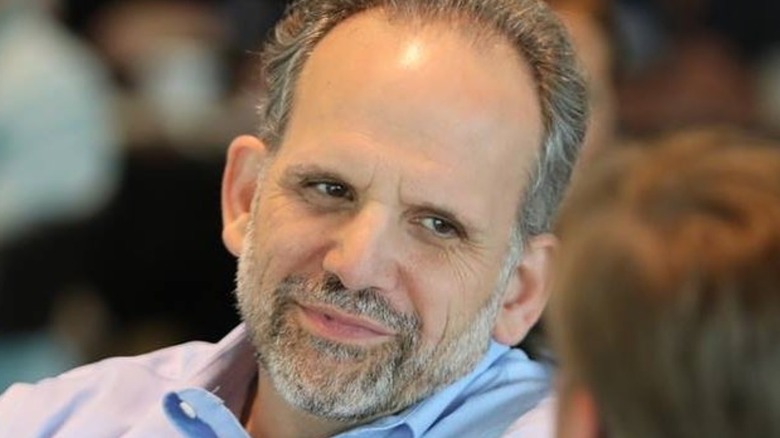The COVID-19 virus created a worldwide pandemic, and it’s also created a brand new chronic illness. Post-COVID symptoms, often called long COVID or long-haul COVID, occur in between 10% to 30% of people infected with the COVID-19 virus, per the American Medical Association. Even those who had mild infections can get long COVID, and so far, there’s no way to know who will get it and who won’t.
This means that millions of people, many of whom were perfectly healthy before getting COVID, are now dealing with a long-term and sometimes debilitating chronic illness. Dealing with the lasting symptoms – and sometimes massive changes in quality of life — is taking a huge toll on their mental health.
Dr. Joseph Trunzo, a clinical psychologist who specializes in treating people living with chronic illnesses, is uniquely prepared for the struggles of the current moment. He did his post-graduate and post-doctoral work with cancer patients and has been working with people living with chronic Lyme Disease for decades. Now, he’s applying his expertise to long COVID.
In an exclusive interview with Health Digest, Dr. Trunzo explained how long COVID is impacting people’s mental health and how he’s helping patients adjust to life with chronic illness.
Adjusting to ‘a major change’ can lead to mental health problems

Dr. Trunzo said that adjusting to the realities of life with long COVID “can be extraordinarily difficult.” Many people living with long COVID had active, full lives before they were infected with the COVID-19 virus. Now, they’re struggling with symptoms like extreme fatigue, joint pain, muscle pain, brain fog, and even cardiac problems on a daily basis.
“It’s a major change, not just in their career and in their functioning, but it tends to change roles in their family,” Dr. Trunzo explained. “Somebody might have been the primary caretaker of their kids, or might have been the primary breadwinner, or there was an equal partnership in the household around that. Now, all of the sudden, one of those people in that partnership is simply not able to hold up their end anymore in the same way that they used to. That can be a very difficult dynamic in relationships.”
He added that people with long COVID often begin to question their “own sense of self-worth and self-esteem and self-efficacy” because their capacity to contribute at work and home has changed so much. Without help, these thoughts can fester and lead to major mental health problems.
Mental health issues are a common symptom of long COVID

The symptoms of long COVID are wide-ranging and unpredictable right now, Dr. Trunzo said. Each patient seems to manifest a unique set of symptoms, and doctors aren’t really sure why. However, many patients do have a few symptoms in common, including mental health issues.
“The things that people are experiencing, the most common one is excessive tiredness and fatigue, increased depression and anxiety … Whether that’s because they’re feeling so crappy and their life has turned upside down because of that, or because the illness itself is driving some kind of organic process of depression and anxiety from cellular dysfunction, who knows?” Dr. Trunzo said. “We don’t know the answers to those questions.”
Right now, the only thing doctors do know is that patients with long COVID are really struggling with their mental health. Dr. Trunzo stressed that therapy, especially a method called Acceptance and Commitment Therapy, can really improve depression and anxiety related to long COVID.
Please visit Changemakers Books to order your copy of “Long Haul COVID: A Survivor’s Guide” today.




